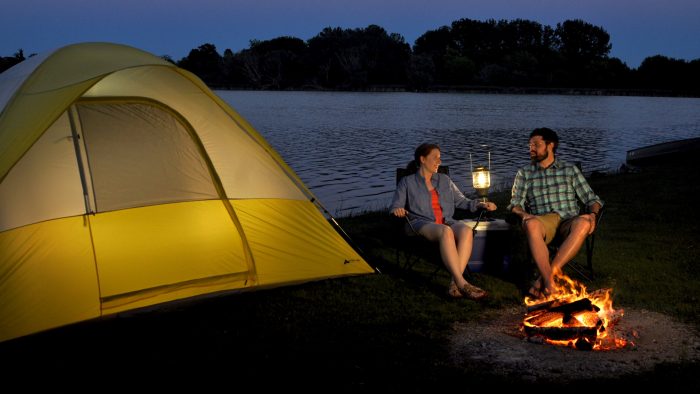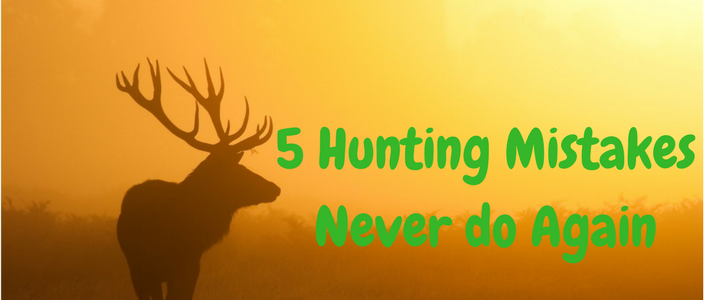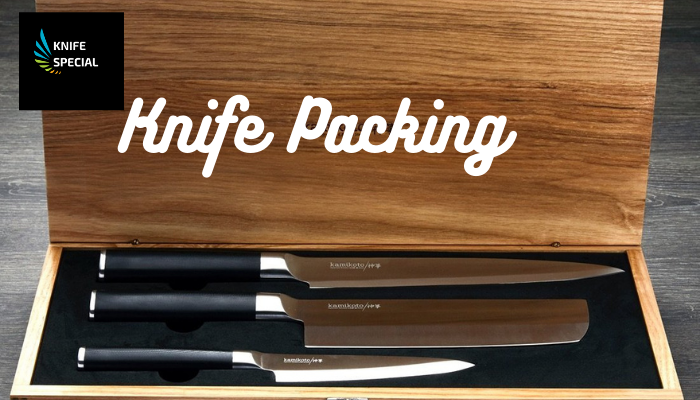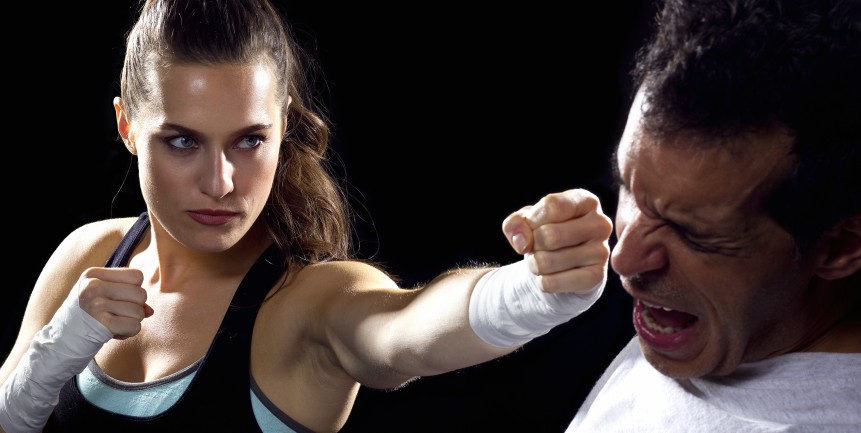A camping and fishing trip immerses you fully into the outdoors. You’ll have to catch fish to provide your own meal, set up camp, and cook your fish out in the wilderness. If it’s your first time camping, you should probably bring or consult someone with experience before you dive deep into outdoors life.

Be sure to research the area that you plan to set up camp, as well as the fishing location. Bring any necessary maps and guides – you may not have cell service depending on your location. To make things easier, we’ve provided a quick list of tasks you’ll need to perform to safely fish, cook, and camp at a campsite.
Pack Light Fishing Gear
There’s a lot you need to go fishing. Some pieces of fishing fillet knife are essential, while others are not. Since you’re also cooking and camping, the amount of gear you’ll need to pack can add up fast. Pack as light as you can when it comes to fishing, cooking, and camping – there’s a lot you’ll have to carry, and you don’t want to wear yourself out or spend half your trip carrying loads of goods back and forth from the car.
Depending on the type of fishing you’re doing and the body of water you’re fishing in, you’ll need different essential gear. Not all types of fishing require the same equipment, so if you’ll be fly fishing, only pack the essential fly fishing gear you’ll need or the equivalent for the style of fishing you choose.
To make things easier, we compiled a list of the absolute basics you’ll need to catch fish. Your needs may vary based on location, the type of fishing, species of fish available, and more. To start, however, make sure you pack this gear:
- Fishing License
- Fishing Rod and Reel
- Fishing Line
- Tackle
- Baits and Lures
- Pliers, Knife, or Multi-Use Tool
- Cooler
- First Aid Kit
Set Up Your Campsite Early
Finding a campsite, especially in an unfamiliar location, can take time. Look for a campsite with good, solid, even ground so that your tents rest comfortably. You should be at least 100 feet away from any rivers or streams. Make sure you don’t wait too close to sundown, as you don’t want to be looking still or setting up in the dark. You’ll also want a light to help you gather wood and start your fire.
Speaking of fire, make sure that you or someone you’re with knows how to start a fire. Before you go, check to see if you need a permit to start a fire. Pack matches, lighters, flint – whatever you need to use to get it going. You’ll need that fire to cook your fish, and it will keep you warm once the sun is down. The placement of your fire is also important – don’t set it up too close to overhanging branches or tents, of course.
Clean Your Fish Before Cooking
The water your fish was just in and the fish itself is not clean whatsoever. Fish usually have a layer of slime on them when they emerge from the water – be sure to wash this off with clean water or a saltwater solution.
Next, scale your fish. Use a knife and go against the scales to remove the scales from the tail to the head on both sides. Rinse the fish again once all its scales have been removed.
After this, you have to gut the fish. Slice it open and remove any entrails with tools or your fingers. Get out all of the organs and rinse off the blood as well.
You should know what type of fish you caught as well. Don’t eat just any fish – some may make you sick. This is where your prior research comes in, as you should know what types of fish you were likely to catch in your location.
Cook Your Fish
Now it’s time to cook your fish. There are many ways you can choose to cook your fish depending on the supplies you brought along. Some choose to bring a small charcoal grill, while others simply opt for pots, pans, or skewers. Here are your options for cooking fish at a campsite:
- Grilling: Grill your fish over a charcoal grill or over your fire. Wrap the fish in aluminum foil first, and place it either on the grill or over hot coals.
- Frying: If you have a frying pan with you, add some oil, heat it up, and throw your fish on the pan over the fire.
- Boiling: If you packed a pot and clean water, simply bring the water to a boil and cook your fish in the boiling water.
- Skewering: Probably the easiest method in terms of equipment, simply cut your fish into smaller pieces, skewer it, and hold it over the fire (safely of course).
For a more delicious experience, it helps to pack some spices or seasonings to add to your fish. Always turn your fish over the fire for even cooking, and test the middle first to ensure that it’s cooked through.
Stay Safe on Your Camping Trips
You may know the basics of fishing, cooking, and camping, but safety is of the utmost importance when handling sharp objects and fires out in the wilderness. Study a safety guide, practice fire safety procedures, and always bring extra clean water and a first aid kit.


